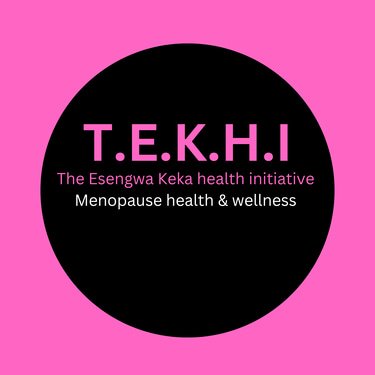The Impact of Caffeine on Menopause Symptoms
Do you know that your innocent cup of coffee has been silently worsening your menopause symptoms? Read to learn more!


The Impact of Caffeine on Menopause Symptoms
Menopause is a natural phase in a woman's life that brings about significant hormonal changes. During this time, many women experience a range of symptoms that can affect their overall well-being. One common aspect that often goes unnoticed is the consumption of caffeine and its potential impact on menopause symptoms. While a cup of coffee may seem harmless, it is important to understand the ways in which caffeine can affect your body during this transitional period.
1. Hot Flashes
Hot flashes are a hallmark symptom of menopause, causing sudden and intense feelings of heat, often accompanied by sweating and flushing. Research suggests that caffeine can trigger or worsen hot flashes in some women. Caffeine acts as a stimulant, increasing heart rate and blood flow, which can exacerbate the intensity and frequency of hot flashes. If you're experiencing hot flashes, it may be worth considering reducing your caffeine intake to see if it helps alleviate these symptoms.
2. Sleep Disturbances
Many women going through menopause already struggle with sleep disturbances, such as insomnia or disrupted sleep patterns. Caffeine, with its stimulating effects, can further disrupt sleep by increasing alertness and delaying the onset of sleep. Consuming caffeine late in the day or evening can make it harder to fall asleep and may lead to more frequent awakenings during the night. It is advisable to limit your caffeine intake, especially in the afternoon and evening, to promote better sleep quality during menopause.
3. Mood Swings and Anxiety
Menopause can bring about emotional changes, including mood swings and increased anxiety. Caffeine, as a stimulant, can heighten these symptoms by increasing the release of stress hormones like cortisol and adrenaline. This can lead to feelings of restlessness, irritability, and even panic in some individuals. If you're prone to mood swings or anxiety during menopause, it may be beneficial to reduce your caffeine consumption and explore alternative beverages or relaxation techniques to support your emotional well-being.
4. Bone Health
Estrogen plays a crucial role in maintaining bone density in women. During menopause, estrogen levels decline, putting women at a higher risk of osteoporosis and fractures. While caffeine itself does not directly cause bone loss, excessive consumption of caffeinated beverages like coffee can interfere with calcium absorption. High caffeine intake can lead to increased calcium excretion through urine, potentially compromising bone health. It is essential to ensure an adequate intake of calcium-rich foods and consider moderating your caffeine consumption to support bone health during menopause.
5. Breast Tenderness
Many women experience breast tenderness and discomfort during menopause. Caffeine has been found to contribute to breast pain and sensitivity in some individuals. It is believed that caffeine can cause blood vessels in the breast to constrict, leading to discomfort. If you're experiencing breast tenderness, reducing your caffeine intake may help alleviate these symptoms.
6. Dehydration
Caffeine is a diuretic, meaning it increases urine production and can contribute to dehydration if consumed in large quantities. Menopausal women may already experience changes in their body's fluid balance, making it important to stay adequately hydrated. Excessive caffeine consumption can exacerbate dehydration and potentially worsen symptoms like dry skin, headaches, and fatigue. It is advisable to limit caffeine intake and ensure you're drinking enough water throughout the day to maintain proper hydration.
7. Digestive Issues
Menopause can bring about changes in digestive health, including bloating, gas, and constipation. Caffeine can further irritate the digestive system and exacerbate these symptoms. It stimulates the production of stomach acid, which can lead to heartburn or worsen existing acid reflux. Additionally, caffeine can act as a laxative, causing loose stools or diarrhea in some individuals. If you're experiencing digestive issues during menopause, reducing your caffeine intake may help alleviate these symptoms and promote better digestive health.
8. Weight Management
Many women find it more challenging to manage their weight during menopause due to hormonal changes and a slower metabolism. Caffeine can indirectly impact weight management by increasing cortisol levels, which can lead to increased abdominal fat deposition. Moreover, caffeinated beverages like sugary coffees or energy drinks can contribute to excess calorie intake. Being mindful of your caffeine consumption and opting for healthier alternatives can support your weight management goals during menopause.
9. Cardiovascular Health
Cardiovascular health becomes increasingly important during menopause, as the risk of heart disease and stroke rises. While moderate caffeine consumption is generally considered safe for most individuals, excessive intake can lead to increased blood pressure and heart rate. This may be of particular concern for women with existing cardiovascular conditions. It is advisable to monitor your caffeine intake and consult with your healthcare provider to ensure it aligns with your cardiovascular health goals.
10. Hormonal Balance
Menopause is characterized by significant hormonal changes, and caffeine can potentially interfere with these delicate balances. Caffeine consumption has been linked to alterations in hormone levels, including increased estrogen levels in some women. This can disrupt the natural hormonal fluctuations that occur during menopause and potentially exacerbate symptoms. If you're experiencing severe menopausal symptoms, it may be worth considering reducing your caffeine intake to see if it helps restore hormonal balance.
Conclusion
While caffeine is a widely consumed stimulant, it is essential to be mindful of its potential impact on menopause symptoms. From hot flashes and sleep disturbances to mood swings and bone health, caffeine can influence various aspects of your well-being during this transitional phase. By understanding these potential effects and making informed choices about your caffeine consumption, you can better manage your menopause symptoms and support your overall health and well-being.
www.tekhiglobal.com
info@tekhiglobal.com
